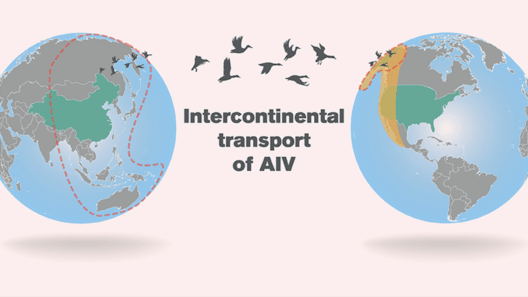The discourse surrounding global warming has evolved dramatically over the past few decades, transitioning from an abstract concept to a tangible crisis demanding immediate attention. This evolution raises a pivotal question: can humans really alter our trajectory and mitigate the dire consequences of climate change, or are we already past the point of no return? To broach this question effectively, we must examine multiple facets of the climate crisis, including scientific understanding, technological advancements, policy changes, and societal engagement.
First and foremost, understanding the scientific underpinnings of global warming is essential. The consensus within the scientific community is unequivocal: climate change is primarily driven by human activities, notably the burning of fossil fuels, deforestation, and industrial processes. These activities have resulted in unprecedented concentrations of greenhouse gases in the atmosphere, leading to increases in average global temperatures, altered weather patterns, and rising sea levels. Most notably, the Intergovernmental Panel on Climate Change (IPCC) has emphasized that we must limit global warming to 1.5 degrees Celsius above pre-industrial levels to avert catastrophic impacts. This target now serves as a guiding framework for global response efforts.
However, reaching this target necessitates transformative changes across various sectors. Transitioning from fossil fuels to renewable energy sources such as solar, wind, and hydroelectric power represents a primary avenue for reducing emissions. Notably, the costs associated with these technologies have plummeted in recent years. The International Renewable Energy Agency (IRENA) reports that solar photovoltaic (PV) module prices have declined by over 80% since 2010, making them a viable alternative to traditional energy sources. As a result, countries around the globe are seeing increases in renewable energy investments, fuelling optimism for broader sectoral shifts.
Nevertheless, it is critical to underscore that technology alone cannot resolve the climate crisis. While innovations such as carbon capture and storage (CCS) and geoengineering capture public intrigue, their implementation remains fraught with uncertainties and ethical concerns. Moreover, the prospect of relying on future technological fixes can inadvertently foster a complacent attitude, delaying necessary action today. To truly effect change, we must meld technological advancement with robust policy frameworks that facilitate sustainable practices, incentivize cleaner energy, and curb emissions.
The role of policy cannot be overstated. Governments hold the power to enact legislation that promotes environmental stewardship and accountability. Initiatives such as carbon pricing, emission trading systems, and investment in public transportation infrastructure can create a paradigm shift towards sustainability. For instance, the European Union’s Green Deal aims to make Europe the first climate-neutral continent by 2050, a commitment that promises to reshape economic frameworks and societal norms. However, achieving meaningful change necessitates collective action, transcending national borders and fostering international cooperation.
This brings us to an essential aspect of the climate discussion: public engagement. The pervasive notion that individual actions yield minimal impact must be dispelled. While systemic change is paramount, the cumulative effect of individual choices—whether it be adopting a plant-based diet, reducing waste, or advocating for climate-conscious policies—can create a significant ripple effect. Movements driven by youth activists, such as Fridays for Future, illustrate the power of grassroots initiatives in pressing for accountability and demanding action from leaders. It is evident that societal engagement is crucial in catalyzing the political will necessary to confront climate change.
Yet, in this conversation, it is vital to acknowledge the prevailing psychological barriers that inhibit action. Climate change can elicit feelings of helplessness, fear, and denial. These emotions feed into a collective state of inertia, prompting individuals and communities to question the efficacy of their efforts. Thus, fostering a sense of agency and empowerment is essential. Educational initiatives that illuminate the interconnectedness of individual actions and global impacts can galvanize collective action and spur community-driven solutions.
Moreover, examining the injustices intrinsic to climate change reveals that marginalized communities often bear the brunt of its consequences, and they are frequently the least equipped to adapt or recover. This disparity underscores the necessity for environmental justice to permeate climate discourse. Addressing the needs of vulnerable populations through inclusive policies can not only enhance resilience but also build diverse coalitions passionate about the climate crisis.
As we reflect upon the potential for human intervention to ameliorate global warming, it is crucial to embrace a mindset grounded in both urgency and optimism. Despite the daunting challenges ahead, recent trends suggest a measurable shift towards sustainability. The accelerating pace of renewable energy adoption, the emergence of innovative technologies, and the growing recognition of climate justice imply that change is not only possible but within reach.
In conclusion, the question of whether humans can indeed reverse the effects of global warming is multifaceted and complex. While the road ahead is fraught with obstacles, it is imperative to act decisively and collectively. With a concerted focus on leveraging technology, enacting robust policies, fostering societal engagement, and addressing systemic injustices, we can pivot from a trajectory of unintended global warming to one characterized by purposeful climate action. The key lies in our dedication to reimagining our world, embracing sustainable practices, and refusing to succumb to despair. The time to act is now, for the fate of our planet hangs in the balance, and every effort counts. Together, we can chart a course towards a more resilient, equitable, and sustainable future.








